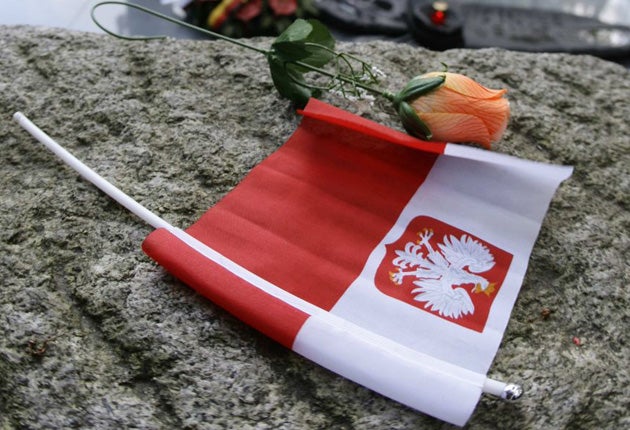History becomes a battlefield as Putin flies into Poland
Deep divisions over who was to blame for Second World War cast shadow over 70th anniversary meeting

European leaders gather in the Polish city of Gdansk today to mark the 70th anniversary of the start of the Second World War, amid an acrimonious row between Moscow and much of Europe over who started the conflict.
The heavily politicised spat has been escalating throughout the summer as central European countries have sought to portray the Nazi-Soviet non-aggression pact as a key precursor to the war. Russia has responded furiously, insisting that Joseph Stalin had nothing to do with the outbreak of hostilities in Europe, and has even blamed Poland for starting the war.
The spat will overshadow today's summit, attended by German Chancellor, Angela Merkel, the Russian Prime Minister, Vladimir Putin, and the British Foreign Secretary, David Miliband. All eyes will be on Mr Putin, who is making his first trip to Poland since 2005, and has in the past reacted aggressively to European criticism of Stalin's role in the war and Soviet atrocities. He is expected to give a speech in Gdansk today, which will be watched closely by the rest of Europe. A foreign policy aide said that one of the main purposes of the trip would be to counter false theories about the start of the war.
The argument comes in the context of a concerted Russian effort to retain the entire war period as a glorious Soviet achievement. Earlier this year, the Russian President, Dmitry Medvedev, set up a body with the Orwellian title of the Commission to Prevent the Falsification of History to the Detriment of Russia's Interests, which could lead to prosecutions of people who seek to "rewrite history". Liberal critics have ridiculed the commission, and say it sets a dangerous precedent which could pave the way for anyone attempting to shed light on some of the darker pages in Russia's history to be silenced.
As the war anniversary has approached, Moscow has ratcheted up the rhetoric. On Sunday, President Medvedev said in a television interview that it was a "complete lie" to say that Stalin bore any responsibility for the war. Natalia Narochnitskaya, a Kremlin-friendly historian and member of the new commission, accused Poland of trying to paint itself as an "innocent victim". Actually, she claimed, for a full six months before the outbreak of war Poland was negotiating with Adolf Hitler to invade the Soviet Union. In Warsaw, such claims are denounced as outrageous lies.
On the eve of the Gdansk meeting, where Mr Putin will have talks with the Polish Prime Minister, Donald Tusk, the Russian Prime Minister appeared to strike a conciliatory tone, saying in an interview with a Polish newspaper that the Nazi-Soviet pact had been "immoral". He added, however, that the Soviet Union had been pushed into the agreement by the failure of Britain, France and other Western countries to form a united front against Hitler.
Mr Putin touched on another sore point in Russo-Polish relations, the Katyn Massacre of 1940, when the Soviets executed 22,000 Polish officers and intellectuals and buried them in a forest in western Russia. For years, Moscow blamed the massacre on the Nazis, and it was only with the fall of Communism that the truth came out. Mr Putin referred to the massacre as a "crime", though stopped short of satisfying a long-standing Polish demand and officially apologising for the atrocity.
Fyodor Lukyanov, editor of Russia in Global Affairs magazine, said: "This is quite surprising, and actually more than we could have expected from Putin, especially in the context of the rhetoric about the Nazi-Soviet pact inside Russia."
Moscow's fury stems from what it sees as the glorification of Nazi-allied partisans and nationalist regiments in Ukraine and the Baltic States. With central and eastern Europe worried about Russia's efforts to maintain a "sphere of interest" in former Communist countries, interpretations of history become ever more important.
"What Russia has in common with Estonia, Poland, Ukraine and all the other post-Communist countries is that they are still trying to build a national identity," said Mr Lukyanov.
"History is extremely important. While in western Europe, countries have been able to discuss historical problems outside of politics, in eastern Europe there is a long history of mixing history and politics."
Subscribe to Independent Premium to bookmark this article
Want to bookmark your favourite articles and stories to read or reference later? Start your Independent Premium subscription today.

Join our commenting forum
Join thought-provoking conversations, follow other Independent readers and see their replies